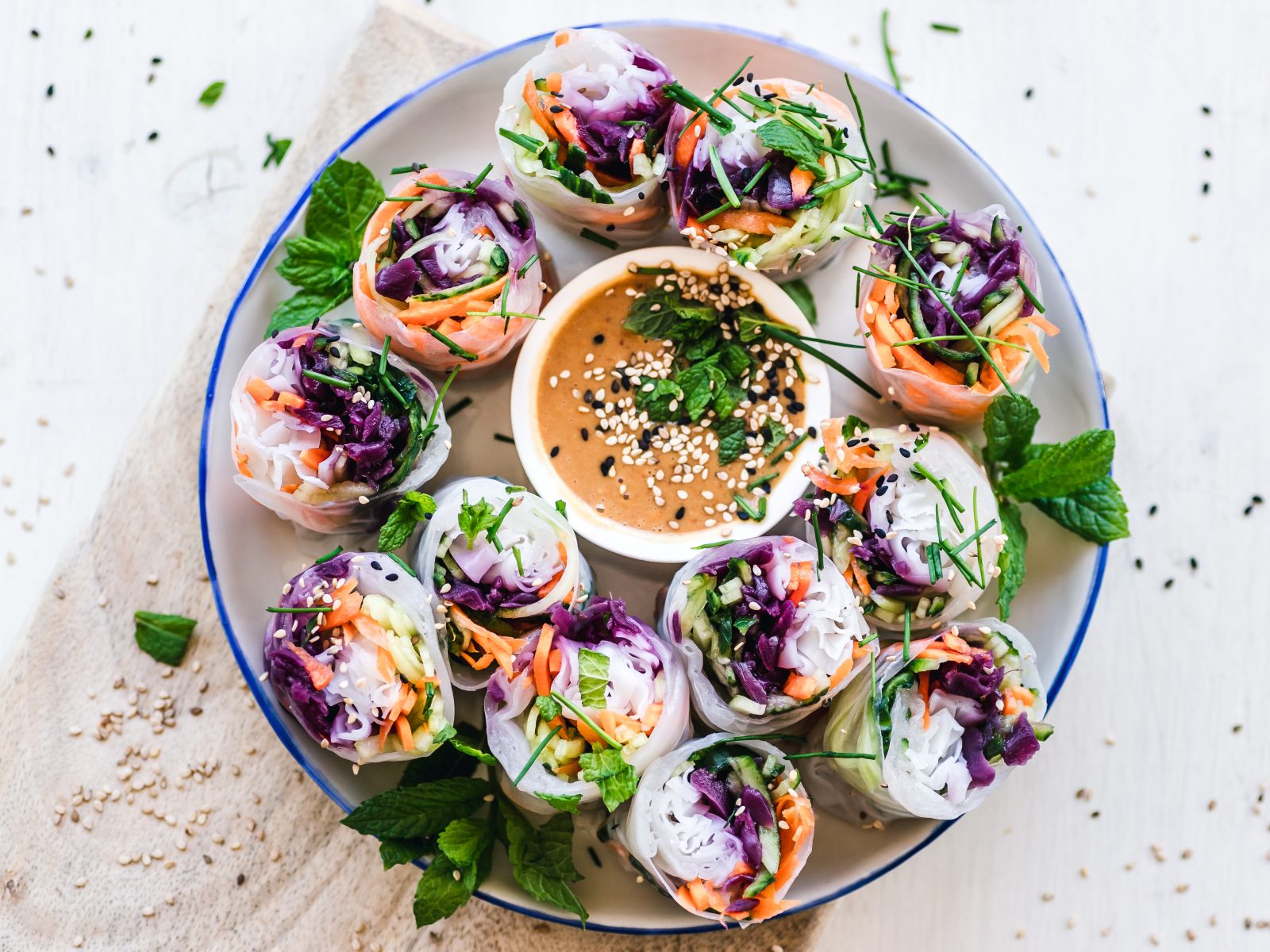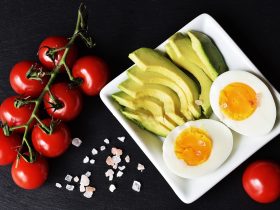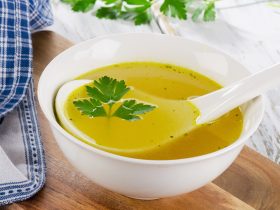What Is the Vegan Military Diet and Should You Try It?
Despite its name, the vegan military diet is unrelated to the military. Instead, it’s a vegan adaptation of the military diet, a strict fad diet that claims to facilitate a weight loss of up to 10 pounds (4.5 kg) within a single week through three days of calorie restriction. The core structure of both diets remains consistent, with the primary distinction being the utilization of vegan foods.
This article provides comprehensive insights into the vegan military diet, encompassing a curated list of recommended foods, its impact on weight management, and its potential health implications.
What is the vegan military diet?
The vegan military diet mirrors the structure of the original military diet, also referred to as the 3-day diet. It revolves around a three-day low-calorie meal plan, offering 1,100–1,400 calories daily and four days of regular eating. Due to this cyclic pattern of calorie intake, it can be regarded as a variant of intermittent fasting. The regimen advises adhering to this eating schedule for up to four weeks or until your desired weight loss goal is reached.
The primary contrast between the conventional military diet and the vegan military diet is substituting animal-based components like meat, dairy, and eggs with plant-based alternatives. Apart from this alteration, both diets maintain an identical framework.
The meal plan
Much like the traditional military diet, the vegan variant entails three days of restricted eating followed by four days of less restrictive consumption.
Example 3-day meal plan
Breakfast:
- A single fruit serving includes 1/2 grapefruit, 1/2 banana, or 1 small apple.
- One carb serving: Choices consist of 1 slice of whole wheat toast, 5 saltine crackers, 1/2 cup (93 grams) quinoa or couscous, or 1/2 cup (130 grams) baked beans.
- One nut serving: Select from 2 tablespoons (32 grams) of peanut butter or 15–20 almonds.
- One drink: Enjoy 1 cup (236 mL) of coffee or tea with no added sweeteners or plant-based milk.
Lunch:
- A solitary vegetable serving: Include 1/2 avocado, recommended daily.
- One dip serving: Opt for 1–2 tablespoons (15–30 grams) of hummus, recommended daily.
- One carb serving: Choices are 1 slice of whole wheat toast, 5 saltine crackers, or 1/2 cup (93 grams) quinoa or couscous.
- One drink: Select between 1 cup (236 mL) of unsweetened almond, soy, or hemp milk or 1 cup of coffee or tea without sweeteners or plant-based milk.
Dinner:
- Two fruit servings: Possibilities include 1/2 banana, 1 small apple, 1 cup of broccoli, 1 cup of green beans, or 1/2 cup of baby carrots.
- One protein serving: Opt for tofu in any preparation under 300 calories, 2 veggie hot dogs without a bun, or 1/2 cup (85 grams) of canned chickpeas.
- One dessert serving: Indulge in 1 cup (236 mL) of plant-based ice cream, recommended daily.
The diet advises a gradual reduction in daily calorie intake. Consequently, you’re encouraged to consume the least food on the third day. For instance, lunch on the third day may comprise only one slice of whole wheat bread, 1 tablespoon (15 grams) of hummus, and half an avocado.
The 4 remaining days
Throughout the 4 days off from the diet, you can consume more calories, allowing yourself a respite from the stringent guidelines. However, it’s important to note that the diet advises not exceeding 1,500 calories per day during this period, which remains relatively restrictive.
The diet recommends assembling your breakfast, lunch, dinner, and two snacks from a catalog of suggested foods. For instance:
Breakfast: Prepare oatmeal using a plant-based beverage, and add chopped apple, walnuts, and a dash of cinnamon.
Lunch: Create a black bean wrap using whole wheat tortillas, avocado, lettuce, and salsa.
Dinner: Enjoy a serving of vegan chili, tortilla chips, shredded vegan cheese, and a side salad.
Snacks: Opt for air-popped popcorn without any seasoning or butter.
Although the diet purports to provide more flexibility during these days, it’s important to recognize that your food choices remain somewhat restricted.
Is the vegan military diet healthy?
The vegan military diet is neither healthy nor sustainable.
During the 3-day phase of the diet, it supplies fewer than 1,400 calories daily, a significant deficit compared to the recommended daily calorie intake for most individuals.
According to the 2020–2025 Dietary Guidelines for Americans, women between 18 and 60 should typically consume 1,600–2,400 calories daily, while men in the same age group should aim for 2,200–3,200 calories daily.
It’s crucial to consider that the ideal daily calorie intake varies based on factors like activity level, ranging from sedentary to very active, and may be influenced by individual health conditions and goals.
Additionally, if you adhere to the suggested 1,500-calorie limit during the remaining 4 days of the diet, you’ll likely be well below your recommended daily calorie intake. The diet does not promote any form of physical activity and relies solely on a substantial calorie deficit for weight loss. If you decide to incorporate exercise into your routine alongside this diet, your body will require more calories.
Furthermore, while the diet offers vegan alternatives for those following a plant-based diet, these choices are limited, portion sizes are small, and many options are heavily processed. In essence, it does not represent a balanced and healthy plant-based diet. A healthy plant-based diet should encompass a variety of minimally processed vegetables, fruits, complex carbohydrates, healthy fats, and plant-based protein sources like beans, lentils, and tofu.
Ultimately, overly restrictive diets like this one can negatively impact your relationship with food and potentially contribute to disordered eating patterns. A healthy diet is one that is enjoyable, affordable, and sustainable. It should align with various aspects of your life, such as cultural norms, traditions, medical and nutritional requirements, and personal preferences, while also providing an adequate intake of calories and essential nutrients for overall well-being.
Regrettably, the vegan military diet neglects many of these essential components of a healthy diet and is not recommended.
Does the vegan military diet work for weight loss?
The vegan military diet may result in temporary weight loss, but any lost weight will likely be regained once you revert to your regular eating habits. Due to its low-calorie nature, the diet can create a significant calorie deficit, which may lead to weight loss.
However, the initial weight loss, particularly the promised 10 pounds (4.5 kg) within a week, is often attributed to water weight loss. Calorie restriction prompts your body to deplete glycogen stores containing 3 grams of water per gram of glycogen.
In simpler terms, as your body utilizes glycogen, it also sheds water weight, mimicking weight loss. Nevertheless, the lost weight will likely return once you resume normal calorie intake. Over a more extended period, you might experience some fat loss, but muscle mass loss is also probable. Muscle loss can occur because the diet lacks adequate protein content and does not emphasize physical activity. Preserving muscle mass during weight loss necessitates sufficient protein consumption and engagement in physical exercise.
Moreover, such a calorie-restricted regimen can lead to increased hunger and is typically not enjoyable, making it challenging to sustain long-term.
Lastly, the diet must impart practical, sustainable healthy eating habits or skills, such as understanding nutrition labels, meal planning, and cooking, which are essential for maintaining weight loss post-diet.
It is more advisable to follow a diet that establishes a modest calorie deficit but can be maintained over the long haul. Ideally, this approach would incorporate increased physical activity and a diet of minimally processed foods rich in protein, vegetables, fruits, fiber, and healthy fats.
The Bottom Line
The vegan military diet is a plant-based adaptation of the military diet, a fad diet characterized by its restrictive, low-calorie approach.
While it offers the allure of rapid weight loss, most of the shed pounds will return once you revert to your regular eating habits, especially since this diet is only recommended for a maximum of 4 weeks.
This regimen is excessively restrictive and lacks long-term safety. Opting for a healthy, sustainable diet and exercise routine that you find enjoyable and can sustain is a far more advisable approach to achieving substantial and lasting weight loss.















Find Us on Socials